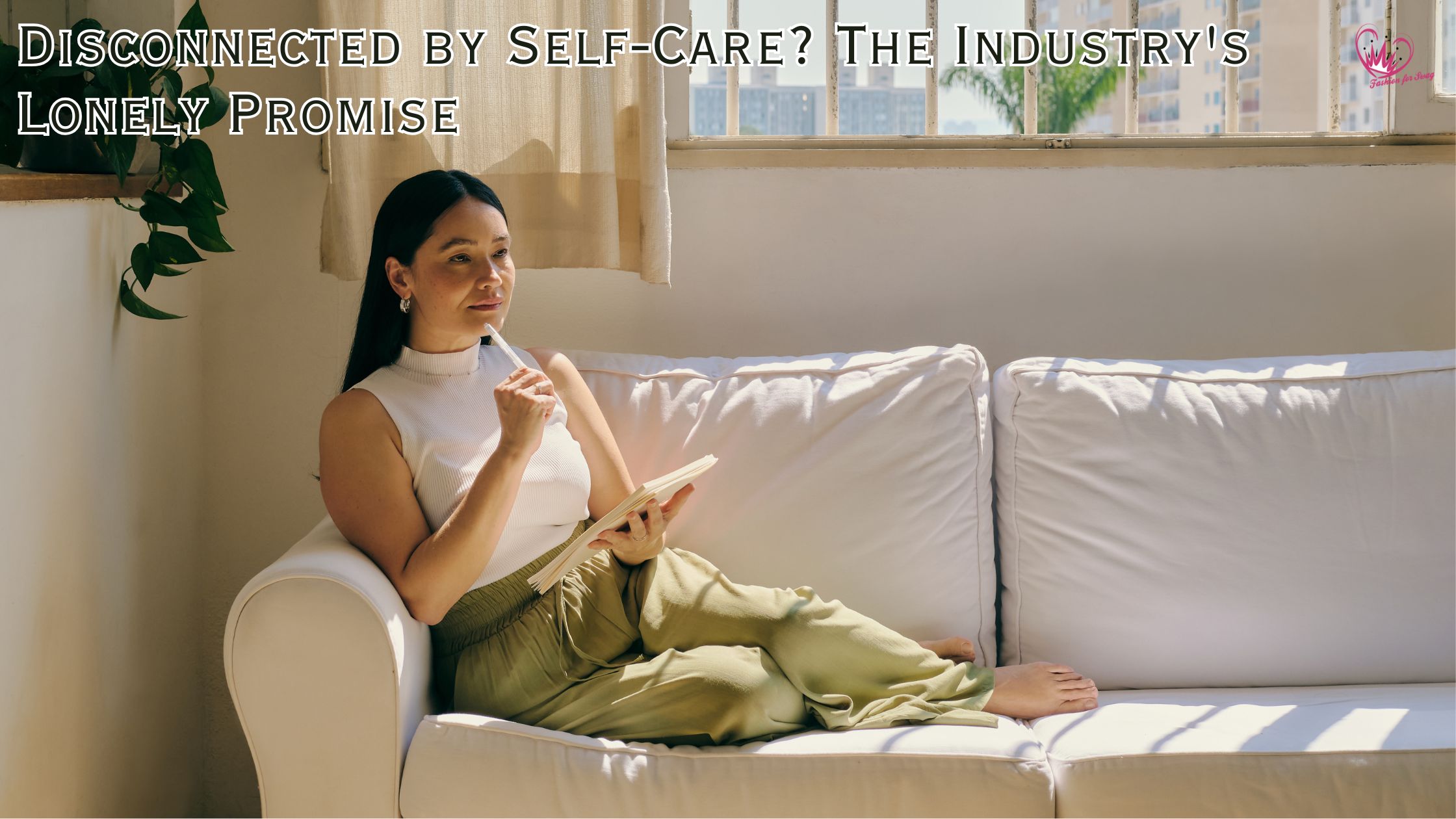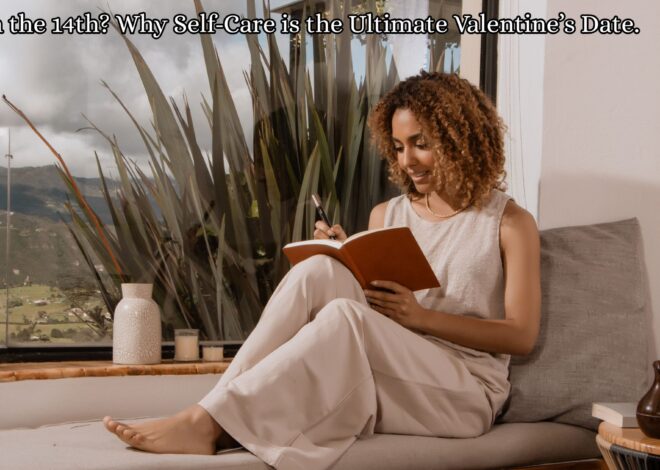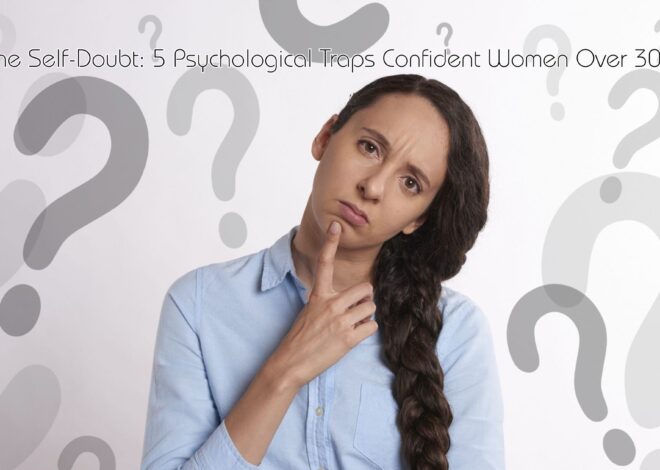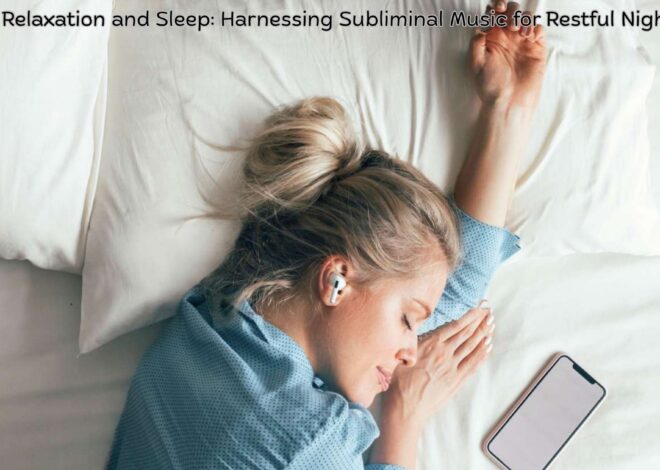
Disconnected by Self-Care? The Industry’s Lonely Promise
You’ve been there, have not you? That feeling of overwhelming strain, the relentless hum of contemporary lifestyles pushing you to the edge. So, you switch to “self-care.” You buy the steeply-priced bath bombs, light the high-priced candles, maybe even try a meditation app or a jade curler, hoping for that promised peace, rejuvenation, and the completely satisfied feeling of “prioritizing yourself.” Yet, after the bubbles dissipate and the scent fades, a unusual emptiness frequently lingers. Paradoxically, regardless of engaging in rituals supposed to soothe, you might find yourself feeling more isolated, extra unfulfilled, or even extra irritating about “doing self-care right.”
The appeal of self-care is simple; it speaks to a genuine human want for respite and nicely-being in a chaotic international. However, the pervasive commercial self-care enterprise, pushed relentlessly by means of consumerism, has twisted this vital concept. It regularly promotes remoted, individualistic practices that inadvertently result in profound disconnection, failing to deal with our deeper, innate human want for community, actual help, and actual wellness. This blog will embark on a vital journey, exploring the insidious pitfalls of this commodified self-care, debunking commonplace myths, and in the end guiding you towards opportunity, connection-centered strategies that virtually nourish your soul and foster sustainable well-being.
The Rise of the Self-Care Industrial Complex
To really recognize how self-care has become a source of disconnection, we should hint its evolution from a thorough necessity to a multi-billion greenback commodity. Historically, self-care’s roots lie no longer in consumerism, but in activism. Pioneers inside the civil rights movement and feminist moves embraced self-care as a crucial, regularly defiant, act of survival, resilience, and community harmony in opposition to oppressive structures. It turned into approximately sustaining oneself and one’s comrades to continue the combat, a collective effort embedded in mutual resource and guide.
Fast forward to nowadays, and this profound concept has been co-opted and transformed into a sprawling, mainstream industry. We’re now immersed in a “buy your way to better” mentality, wherein the solution to strain and weigh down is always outside and obtainable. The marketplace is flooded with pricey bath bombs, jade rollers, detox teas, fashion designer activewear, meditation apps, and comfort wellness retreats.
The unspoken, yet pervasive, message is obvious: in case you’re not feeling properly, it’s because you’re no longer doing enough, or more pointedly, you haven’t offered this product or skilled that service. This relentless commercialization creates an illusion of control, promising brief, individual fixes for deeply systemic issues like traumatic paintings cultures, financial insecurity, and a sizable loss of robust help structures. By framing properly-being as a personal purchasing list, the self-care commercial complex skillfully distracts us from addressing the actual root causes of our collective anxieties and burnout.
The “Lonely Promise”: How Commercial Self-Care Disconnects Us
The maximum insidious element of the industrial self-care industry is its “lonely promise”—the diffused yet profound way it pushes us further into isolation in place of actual well-being. This starts off evolved with A. The Individualistic Trap. Modern self-care is overwhelmingly portrayed as a solitary enterprise: the serene bubble tub, the solo Netflix binge, quiet journaling in isolation.
This depiction starkly contrasts with the historic and anthropological know-how of wellness, which has constantly been deeply collective and relational, rooted in community aid and shared burdens. By framing self-care as something you do on my own, it inadvertently reinforces a feel of person duty for systemic troubles, pushing us away from the very human connections that are essential for intellectual and emotional health.
This individualistic slant breeds B. Performance Pressure & Guilt. The endless parade of “self-care gurus” and Instagram able health rituals creates an not possible popular. Suddenly, self-care isn’t always about proper rest; it’s some other undertaking to carry out perfectly, any other item on an already overflowing to-do listing. When these curated rituals don’t magically erase strain or when we truly do not have the time, power, or desire to have interaction, we are left with a crushing experience of guilt and inadequacy, similarly exacerbating the very strain self-care became speculated to alleviate.
What’s greater, this superficial technique frequently results in C. Masking Deeper Needs. The brief dopamine hit from a new product or a fleeting moment of solitude can distract us from confronting underlying loneliness, a profound loss of purpose, or the absence of meaningful community. These brief fixes offer a brief get away however fail to domesticate sustainable properly-being, which requires addressing essential human wishes for belonging, contribution, and shared revel in.
This commercialized version of self-care also creates D. Financial Exclusion. Many of the touted self-care traits are prohibitively costly, from excessive-cease spa remedies and retreats to specialized devices and organic dietary supplements. This creates a substantial barrier for those who often endure the brunt of stress and systemic pressure, efficiently reinforcing a class divide in properly-being. If you cannot come up with the money for these luxuries, the unstated message is which you can’t come up with the money for to sense higher.
Ultimately, this cognizance on individualistic intake leads to E. The Erosion of Community & Support. When we are continuously advised that non-public issues have to be solved through personal consumption and solitary practices, it subtly undermines the fundamental human want for collective guide, advocacy, and shared reports. It discourages requesting assist, taking part in mutual resource, or difficult the systemic issues that contribute to our collective pressure, leaving us sincerely disconnected by means of layout.
Redefining Self-Care: Towards Authentic Connection and Well-being
It’s time to reclaim self-care from the clutches of consumerism and redefine it as a pathway to actual connection and sustainable well-being. This starts Moving Beyond Consumption to Holistic wellness. Instead of viewing self-care as a shopping list, permits reframe it as a commitment to sustainable practices that nurture your mind, frame, and spirit. This includes fostering inner regulation, growing powerful pressure control techniques, and constructing actual resilience from inside, as opposed to relying on outside fixes.
The cornerstone of this redefined self-care. The Power of Connection. True properly-being thrives in courting, not in isolation. This consists of embracing Community Care, highlighting the important significance of mutual resource, robust help networks, and shared reports. Think approximately volunteering for a reason you consider in, becoming a member of nearby community groups, sharing hobbies with others, or really carrying out open, sincere conversations with cherished ones.
It’s approximately recognizing that our properly-being is intrinsically connected to the wellness of those round us. Furthermore, Relational Self-Care entails actively prioritizing healthy relationships, learning to set clear boundaries, practicing the vulnerability of inquiring for assist when wanted, and finding success in both giving and receiving guide. Don’t forget the profound blessings of Nature Connection—spending time exterior has an aptitude to reduce strain, enhance mood, and foster a deep experience of belonging to something large than ourselves.
Fortunately, certainly impactful self-care does not require a hefty credit score card invoice. There are abundant. Practical, Accessible Alternatives. Explore loose assets for mindfulness and meditation, whether through guided practices or without a doubt being attentive to your breath. Engage in pleased movement like on foot, stretching, or dancing. Prioritize ok sleep and nourishing nutrition, information those as essential acts of self-care.
Unleash your creativity through artwork, track, or writing for personal amusement, not for external validation. Crucially, practice placing wholesome obstacles – gaining knowledge of to mention “no” when vital and coping with your digital intake to guard your intellectual space. For a few, true self-care may additionally even enlarge to carrying out advocacy and addressing systemic issues that make contributions to collective strain.
Finally, the journey of genuine self-care is powered by using Self-Compassion, Not Self-Perfection. Let pass of the stress to be a “self-care guru” or to flawlessly execute each fashion. Embrace self-kindness, receive your imperfections, and recognize that nicely-being is a dynamic method, now not a static achievement. True self-care is about being gentle with yourself, even on days whilst all you could manage is a quiet second of breath.
Conclusion
The self-care enterprise, with its dazzling array of merchandise and solitary rituals, frequently promises peace but delivers disconnection. We’ve visible how its consumerist power pushes us into an individualistic trap, fostering overall performance stress and masking deeper desires for connection, while frequently aside from individuals who need aid maximum.
But it does not should be this way. It’s time to reclaim self-care from this narrow, commercialized definition and redefine it on our own terms. True well-being isn’t determined in isolation or intake; it flourishes via genuine connection, encompassing now not just non-public practices but also network care, healthy relationships, and a profound connection to nature.
We invite you to step far from the lonely promise of commodified self-care. Instead, are trying to find out real connections, prioritize mutual help, and domesticate a sustainable properly-being practice that really nourishes your mind, body, and spirit, as opposed to leaving you feeling more isolated. Remember, actual self-care is not a lonely pursuit; it’s an interwoven tapestry of private properly-being and collective thriving.



